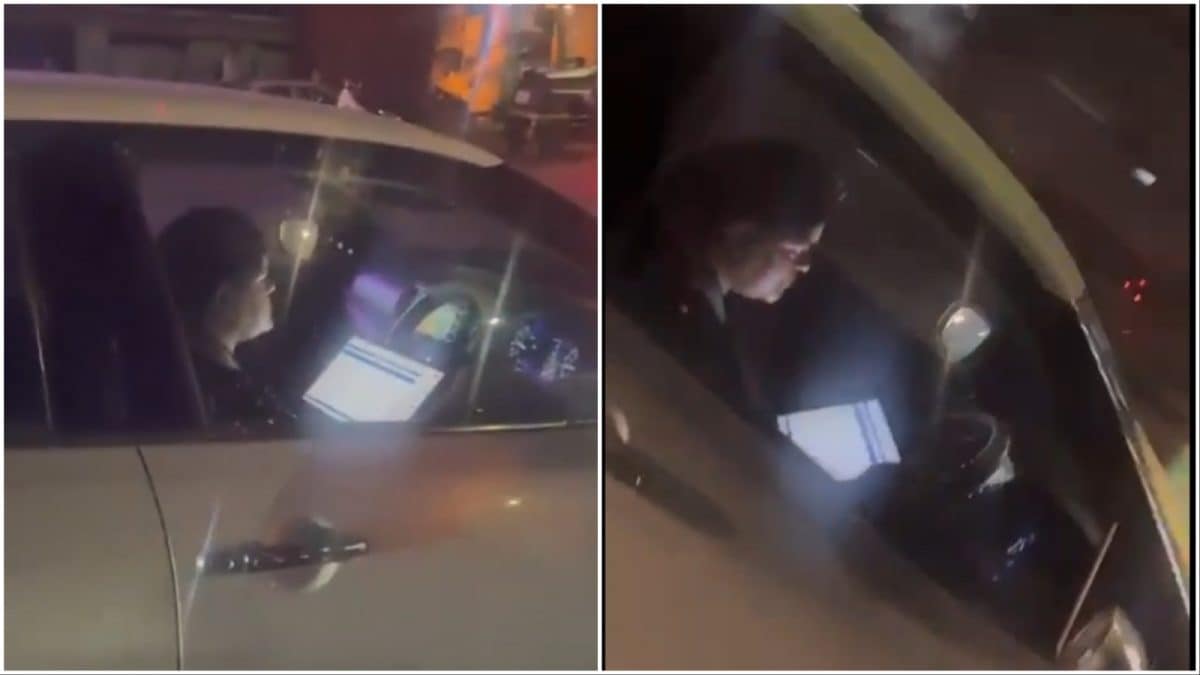 |
|
The recent incident involving a Bengaluru woman who was fined for using a laptop while driving has ignited a passionate online debate, highlighting the complex interplay between work pressures, traffic congestion, and individual responsibility. The incident, captured on video and widely shared on social media, shows the woman operating a laptop in her vehicle while navigating Bengaluru's notoriously congested roads. The swift action by the Bengaluru Traffic Police, who issued a fine and shared the video on their official social media accounts, underscores the gravity of the offense and the potential dangers of distracted driving. The police's concise message, "Work from home, not from car while driving," succinctly captures the core issue: prioritizing road safety over work demands.
The viral video and subsequent social media discussions revealed a diverse range of opinions. While some users advocated for stricter penalties, including the suspension or revocation of the woman's driving license, others focused on the underlying issues of excessive work pressure and inadequate public transportation infrastructure within Bengaluru. Many commentators questioned the role of the woman's employer, arguing that unrealistic workloads and expectations contribute to such situations. The comments section of the police's post became a forum for expressing frustration with the relentless pressures of modern work culture, with many users describing their own experiences of long working hours, inadequate work-life balance, and the daily struggles of navigating Bengaluru's traffic. The incident has unexpectedly brought to the forefront a wider societal conversation about employee well-being and the need for employers to prioritize their employees' safety and mental health.
The debate transcends the simple act of distracted driving. It exposes a deeper societal concern regarding the blurred lines between work and personal life, particularly in high-pressure urban environments. The narrative of the Bengaluru woman's situation resonates with many individuals facing similar challenges, creating a platform for discussion on the need for more realistic work expectations, better public transport, and a more humane approach to work-life integration. The incident also underscores the importance of prioritizing road safety. Distracted driving, regardless of the cause, poses a significant threat to both the driver and other road users. The woman's actions, while potentially driven by external pressures, served as a stark reminder of the serious consequences of compromising safety on the roads. The case highlights the critical need for individuals to be mindful of their actions behind the wheel and prioritize safety above all else.
Furthermore, the incident raises questions about the role of technology in modern work culture. The easy accessibility of laptops and mobile devices enables individuals to work virtually from anywhere, but this convenience also carries inherent risks, particularly when driving. The fact that the woman was using a laptop, a device typically associated with office settings, while driving emphasizes the blurring of lines between work and personal life, and the potential for technology to negatively impact safety. Moving forward, it is crucial to foster a workplace environment that values employee well-being and promotes realistic expectations of productivity, allowing for sufficient time to manage personal responsibilities and avoid jeopardizing one's own and others' safety. This incident serves as a powerful case study for employers to re-evaluate their work culture and practices, ensuring that the pressure to meet deadlines doesn't override the critical need for road safety.
Ultimately, the Bengaluru woman's experience is more than just a case of distracted driving; it is a reflection of broader societal issues related to work-life balance, workplace pressures, and the challenges of navigating urban life. The incident underscores the importance of a multi-faceted approach to addressing these challenges, involving individual responsibility, employer accountability, and improved public infrastructure. Only through a collective effort can we create a more supportive and safe environment for everyone, balancing the demands of modern work culture with the fundamental need for road safety.
Source: Bengaluru Woman Uses Laptop While Driving, Traffic Police Say 'Work From Home, Not From Car'
